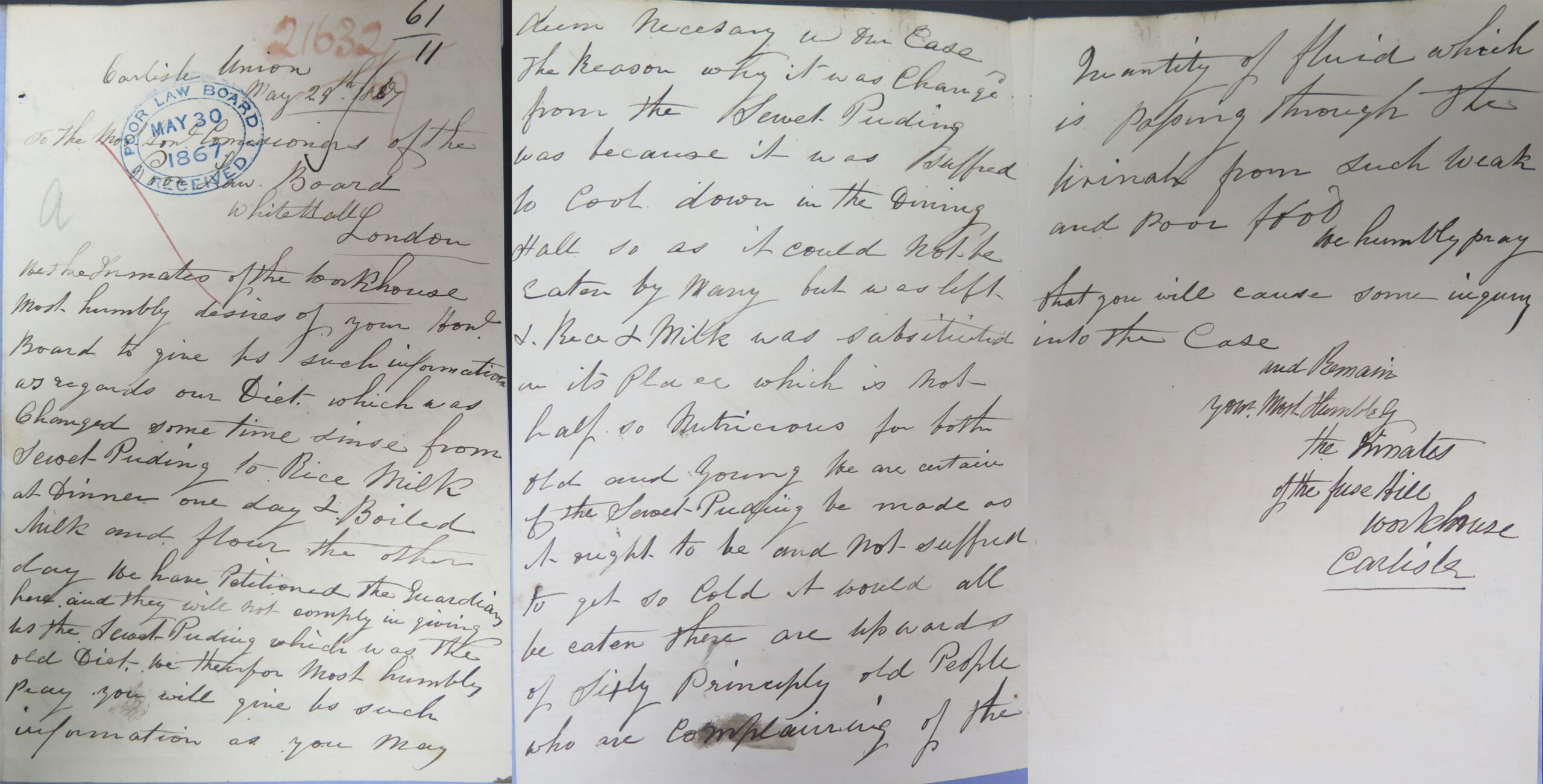
Catalogue Ref: MH 12/1599, 21632/1867
Transcript
Carlisle Union
May 29th 1867
To The Most Hon. Comissioners of the Poor Law Board
Whitehall
London
We the Inmates of the Workhouse most humbly desires of your Hon. Board to give us such information as regards our Diet which was changed some time since from Sewet Puding to Rice Milk at Dinner one day & Boiled Milk and flour the other day We have Petitioned the Guardians here and they will not comply in giving us the Sewet Puding which was the old Diet. We therefor most humbly pray you will give us such information as you may deem necesary in our case The Reason why it was changed from the Sewet Puding was because it was [suffred] to cool down in the Dining Hall so as it could not be eaten by many but was left & Rice & Milk was substituted in its place which is not half so nutricious for both old and young We are certain if the Sewet Puding be made as it ought to be and not [suffred] to get so cold it would all be eaten there are upwards of fifty Principly old People who are complaining of the quantity of fluid which is passing through the urinal from such weak and poor food
We humbly pray that you will cause some inquiry into the case
and Remain
Your. Most Humblythe Inmates of the fuse Hill Workhouse
Carlisle
All letter questions:
- What is the letter asking for or discussing?
- What area of the poster is it exploring?
- What do you notice about the language of the letter? Is it formal, informal, desperate, well-written or poorly-written? Does this issue get resolved? How does it differ to how we write letters of complaint in today’s society?
- What might the response be from the Poor Law Commission?
- How does this letter challenge the perception of the poor in the 1837 poster?
Letter specific questions:
- Who is writing the letter? Do you think this would make a difference on the speed of the response? Explain your answer.
- What are they complaining about?
- What are the consequences of the poor diet?
- How might this issue be dealt with in today’s society?
- What does this suggest about the acceptance of living conditions in the workhouse by its inmates?
